SUMMARY
This is AI generated summarization, which may have errors. For context, always refer to the full article.
![[OPINION] Do we need the ICC? Philippine justice system in numbers (the hard evidence)](https://www.rappler.com/tachyon/2023/02/20230228-who-so-afraid-of-ICC-02.jpg)
We are republishing this from marengwinniemonsod.ph with permission from the author.
Justice Secretary Jesus Crispin “Boying” Remulla was reported over the weekend to have said that our current justice system was “competent, capable, and running”.
Let’s look at some anecdotal evidence:
There is the case of former Senator Leila de Lima: at its most basic, she immediately requested for bail, but for more than six years now, the courts have been dithering, unable or unwilling to decide. But her case pales in comparison with those of less fortunate persons deprived of liberty who have spent five years and more in detention with nary a court hearing (google Miguel Syjuco’s piece in the NY Times some time ago – see below). This in turn pales in comparison with the fact that out of thousands of deaths (9,000 official, 27,000 unofficial, but these vary) in the Duterte Drug War, only one case (that of Kian de los Santos) has been resolved.
Now let’s look at the hard evidence, in case we are criticized for offering only anecdotes.
The Philippine Development Plan 2023-2028
The first piece of hard evidence is the assessment of the Philippine government itself on the justice situation. It’s contained in the present administration’s Philippine Development Plan (PDP) 2023-2028 , Chapter 13, “Ensure Peace and Security and Enhance Administration of Justice”. It says,
“The overall percentile rank of the Philippines in cross-country indices remains low. The country failed to meet the 2022 targets in fundamental rights (29.00 vis-à-vis 15.71), civil justice (27.00 vis-à-vis 25.71), and criminal justice (29.00 vis-à-vis 16.43) sub-indicators under the World Justice Project. It likewise failed to meet the 2021 target in rule of law index (50.00 vis-à-vis 26.92) under the Worldwide Governance Indicators.”
Further,
“Despite… positive developments, several policy reforms and key legislations remain unattained, such as “Fragmentation of the criminal justice system remains a challenge”, “Backlogs in resolving cases, delays caused by inefficient practices, and aging persist”, “Limited resources weaken the justice sector,” and “Low public confidence in the justice system undermines the rule of law”.
All are expounded in the chapter.
What are these positive developments that are referred to? As enumerated in the chapter, they are: From the legislature, the passage of Republic Act (RA) 11576 (amending the jurisdictions of the First and Second Level Courts in civil cases), and RA 10051 (updating the penalties for offenses based on pecuniary value); from the Executive, the implementing rules and regulations of the Good Conduct Law and the Bail Bond Guide of the DOJ are now being implemented(!), and from the judiciary, amendments to 1997 Rules of Civil Procedure, to the 1989 Revised Rules on Evidence, and to Rules on Expedited Procedures in First Level Courts that were made in 2019. Really?
STATDEV 2021
But before we leave this topic, let me refer to the Philippine Statistics Authority’s (PSA) STATDEV 2021, to help us understand the assessment made in Chapter 13 of PDP 2022-2028 about the country’s failure to meet certain justice targets. STATDEV 2021 is the source of those statements because it monitors annually all the goals and targets of the PDPs and presents it in July each year, just in time for the President’s State of the Nation Address (SONA).
What STATDEV 2021 reveals is that the justice sector, which is the second out of 15 sectors in the Duterte PDP 2017-2022 (the first is governance), has the highest fail rate among all these. Of its 13 targets, only 4, or 30.8% were achieved – percentile rank on civil justice, World Justice Report’s (WJP) Rule of Law Index (2016 baseline – 23.01, 2022 target – 27, 2021 actual – 27.32); percentage of preliminary investigation backlog decreased (50%, 25%, 10.14%); percentage of complaints disposed over total handled (87.78%, 90%, 93.27%); and unsentenced detainees as a percentage of prison population (79%, “decreasing”, 65.17%). What it means is that if this was an exam, the Duterte government would get a grade of 31 because it got only 4 answers correct out of 13.
Eight of the 13 targets (or 61.5%), including the civil justice, criminal justice, and fundamental rights targets mentioned above, had a less than 50% probability of being achieved. The irony is that instead of going closer to the targeted values, the indicators showed movements away from them. It seems the Duterte administration was moving away from the Rule of Law rather than towards it.
World Justice Report
The second piece of hard evidence that the Philippines justice system, to put it bluntly, sucks, comes from the World Justice Report’s (WJP) Rule of Law Index, 2022, mention of which has already been made above.
More accurately, we suck at observing the Rule of Law, but our criminal justice system sucks the most.
The WJP Rule of Law Index measures 44 sub-factors which make up 8 factors which then together and averaged, make up the overall score of a country. The sub-factor for each country are given scores ranging from 0 (meaning weakest adherence to the rule of law) to 1 (strongest adherence to the rule of law). The 8 factors are Constraints on Government Powers (6 subfactors), Absence of Corruption (4), Open Government(4), Fundamental Rights (8), Order and Security (3), Regulatory Enforcement (5), Civil Justice (7) and Criminal Justice (7).
The latest overall score for the Philippines for 2022 is 0.47 (highest country overall score is Denmark 0.95, lowest Venezuela 0.26), placing us 97th or in the bottom third out of 140 countries in the Index, and 13th out of 15 countries (also bottom third) in the East Asia and Pacific Region. Remember, Reader, a score and a rank closer to 1 means a stronger adherence to the rule of law and a relatively better performance compared to other countries. How are we doing with respect to the rest of ASEAN-5 (Indonesia, Malaysia, Thailand and Vietnam)? Both the Philippine score and rank are lower than theirs. That is the basis for saying we suck when it comes to the rule of law.
The good news here is that our score went up by .01 over 2021, and we moved up 5 places in the global ranking, suggesting that President Bongbong Marcos Jr.’s (PBBM) administration may be doing a better job at adhering to the rule of law than his predecessors. But too early to tell. The bad news is that in 2015, our score was a much higher 0.53 and our global rank was 51 out of 102. This is the highest score and rank we obtained since the Index was brought out in 2008, suggesting (strongly) that PNoy [President Benigno “Noynoy” Aquino III] brought this country closer to the rule of law while Duts [President Rodrigo Duterte] brought us further away.
But the overall score is an average of the 8 factors, which are in turn the average of their sub-factors. Our highest factor score was in Order and Security (0.66) and our lowest was in Criminal Justice (0.32). We got our highest factor rank in Open Government (71 out of 140) and our lowest factor rank in Fundamental Rights (118) closely followed by Criminal Justice (117).
This is the basis for saying that we suck the worst when it comes to Criminal Justice, where the Philippines gets its lowest scores, and is furthest from the regional average. For example, the Philippines gets its lowest score of 0.18 in the Criminal Justice subfactor Correctional System is Effective in Reducing Criminal Behavior (compare this to the regional average of 0.52), and our global rank here is 128/140). Moreover, we get a score of 0.27 for Criminal System is Free of Improper Government Influence (shades of the De Lima case), where the regional average is 0.48. And we get a score of 0.29 for Due Process of the Law and Rights of the Accused. Not only is the regional average score much higher at 0.53, but our global rank falls to 132. We are only 8 places from the bottom of the barrel.
Summary: In the light all of the foregoing, one has to ask: What evidence does Secretary Remulla have for saying that our justice system is “competent, capable and running?”
Your takeaway
1. Our own government has acknowledged our poor justice system in the PDP 2023-2028.
Philippine Justice System in Numbers
2. Our PSA’s STATDEV 21 shows that we only passed 4 out of 13 targets for the justice sector. In an exam, this is only 31%.
3. Eight out of the 13 justice sectors had less than 50% probability of being achieved.
4. As an average, our Rule of Law score in the World Justice Report is 97th out of 140.
5. In criminal justice scores only, we would be 132 out of 140.
6. Our scores are lower than the world average AND the regional average.
Read for yourself (clickable links):
1) Miguel Syjuco: The Injustice System, New York Times, April 26, 2017.
2) PHILIPPINE DEVELOPMENT PLAN 2023-2028.
4) World Justice Report, Rule of Law Index – Rappler.com
Solita “Winnie” Monsod was the first National Economic and Development Authority secretary appointed after the fall of the Marcos dictatorship in 1986. She is a professor emerita at the UP School of Economics where she taught starting 1983. She finished her degree in economics in UP and obtained her masters in economics at the University of Pennsylvania. She is a board director of Rappler Inc.
Add a comment
How does this make you feel?
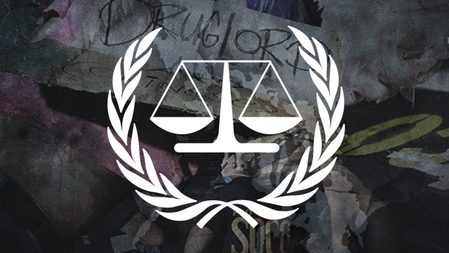



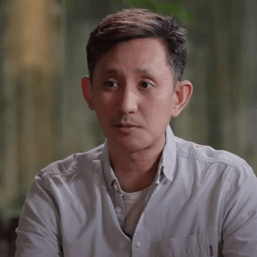
![[WATCH] Dahas Project, the team that continues to count drug war victims](https://www.rappler.com/tachyon/2024/03/dahas-project-2.jpg?resize=257%2C257&crop=404px%2C0px%2C1080px%2C1080px)
![[The Slingshot] Alden Delvo’s birthday](https://www.rappler.com/tachyon/2024/04/tl-alden-delvo-birthday.jpg?resize=257%2C257&crop=263px%2C0px%2C720px%2C720px)

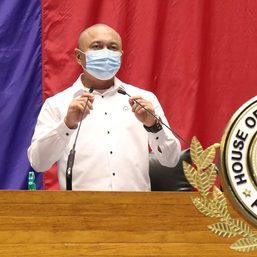
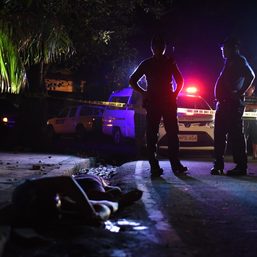


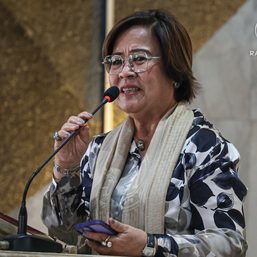

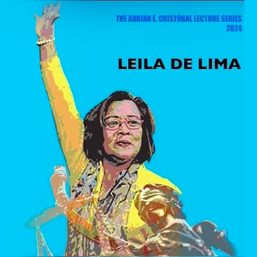
![[EDITORIAL] Justice, Philippine style: Acquitted sa plunder, pero may kabig naman](https://www.rappler.com/tachyon/2024/01/animated-jinggoy-estrada-acquittal-carousel.jpg?resize=257%2C257&crop_strategy=attention)
![[EDITORIAL] Ang low-intensity warfare ni Marcos kung saan attack dog na ang First Lady](https://www.rappler.com/tachyon/2024/04/animated-liza-marcos-sara-duterte-feud-carousel.jpg?resize=257%2C257&crop=294px%2C0px%2C720px%2C720px)
![[Newsstand] Duterte vs Marcos: A rift impossible to bridge, a wound impossible to heal](https://www.rappler.com/tachyon/2024/04/duterte-marcos-rift-apr-20-2024.jpg?resize=257%2C257&crop=278px%2C0px%2C720px%2C720px)


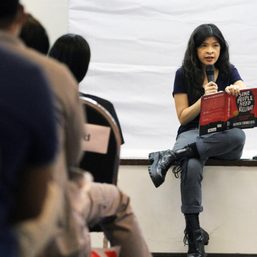
![[Rappler’s Best] Patricia Evangelista](https://www.rappler.com/tachyon/2024/04/unnamed-9-1.jpg?resize=257%2C257&crop=486px%2C0px%2C1333px%2C1333px)

There are no comments yet. Add your comment to start the conversation.